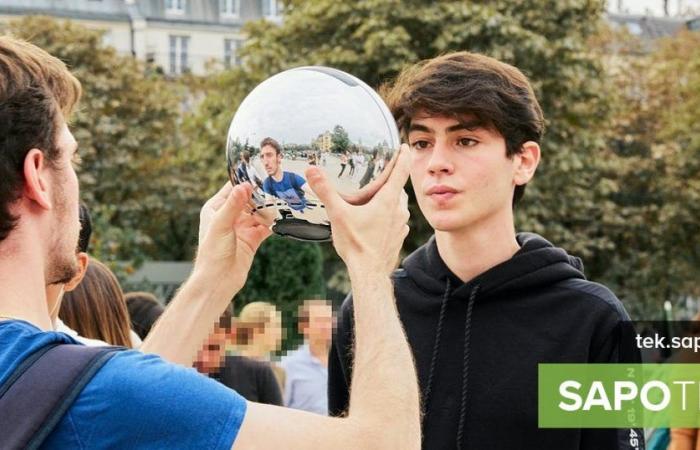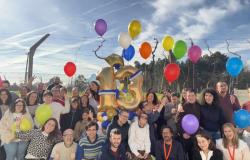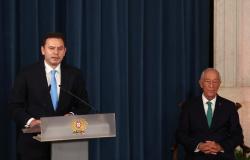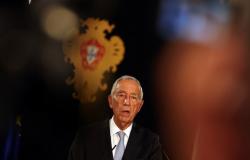
According to data advanced by Worldcoin, In Portugal, more than 300 thousand people, equivalent to 3% of the country’s population, have already agreed to have their iris scanned in one of the locations where the project has its operators, in Aveiro, Braga, Lisbon and Porto.
Demand is growing and, on social media and online platforms such as Reddit, not only doubts about how the project works, but also concerns about the impact on security and privacy and criticismboth to the project approach and to those who decide to participate without investigating first.
In Spain, for example, where the local data protection authority launched an investigation into Worldcoin, reports emerged of teenagers willing to give their biometric data to receive cryptocurrencies, at a time when the project’s token, officially launched in 2023, has increased considerably, reports the Spanish website Xakata.
Spain is not the only region where the project has attracted the attention of the respective data protection authorities. From France and Germany to Kenya, passing through Hong Kong, in Portugal, the National Data Protection Commission is also investigatinghaving carried out an inspection, in addition to taking steps regarding the companies involved in the project, Expresso advances.
But concerns about Worldcoin, its true goals, and its security and privacy practices are not new. Furthermore, experts such as Ricardo Lafuente, vice-president of the D3 Association – Defense of Digital Rights, with whom SAPO TEK spoke previously, had already expressed doubts about the proposal.
Then How does Worldcoin work and what are its objectives? SAPO TEK has prepared an explainer to help you understand the subject.
-
What is this project about?
As explained by Ricardo Macieira, regional director for Europe at Tools for Humanity, the company that develops tools for the project, in a virtual meeting with the media in which SAPO TEK participated, Worldcoin, founded by Alex Blania, Max Novendstern and Sam Altman, current CEO of OpenAI, wants to answer the question “how can we prove identity in the digital world”?
The project argues that the solutions presented by other platforms, such as the social network X (formerly Twitter) with paid verification markers, are not practical and exclude, for example, those who do not have access to a bank card or other types of documentation required.
“If we look at the world’s population, we are clearly excluding the majority and taking away their power to prove that they are human in the digital world. This really isn’t fair and we don’t think it’s the solution”, says Ricardo Macieira.
It all started with an idea from Sam Altman. “If the world wants to create a Universal Basic Income at scale, how will it be done? This was the first challenge. How do you prove you’re distributing something to a single human and not an army of bots?” details.
The project has evolved since its evolution and, today, the focus is on proving humanity in the digital world, focusing on three elements: World ID, the Worldcoin token and the World app.
According to the project, the World ID, described as a digital passport based on a decentralized identity protocol, is designed to prove that a person is “real and unique” when accessing websites or online applications.
Identity verification by reading the iris on an Orb, one of the company’s own readers, is necessary to have a World ID. Ricardo Macieira explains that when reading an Orb, the equipment begins by identifying whether the person in front of it is really a living human.
Click on the images to see in more detail
With this distinction made, images of each iris are collected and transformed into a unique code, the Iris Code“which cannot be reverted back to the images used to generate it”.
“By default, images are deleted from the system”, says the person responsible. Remember that, as Pedro Trincão Marques, currently Tools for Humanity operations manager for Europe, had already explained, “if the person wants to leave their image on Orb they can do so to help the algorithm be developed, but it is completely optional”, with the data being encrypted.
The Iris Code then goes to an encrypted server, where an “inclusion or exclusion process” is carried out”, says Ricardo Macieira, to check whether the person has already registered previously. The company claims that World ID is not derived from or linked to the biometric data, phone number, cryptocurrency wallet or any other identifier of the person who holds it.
After verifying that they are a unique human, users can use World ID within the World app, which serves as a self-custodial wallet. World ID is also required for each user to receive an amount of 10 free Worldcoin tokens.
-
What is the role of the Worldcoin token?
The Worldcoin token (WLD) is the way the company intends to govern the protocol created. The objective is to create a DAO (Decentralized Autonomous Organization, in Portuguese), described as a community where people decide what the company does with technology.
“For us, it is very clear that a project like this should not be left to just one company, one entity or one person”, highlights Ricardo Macieira. “How we designed this project was by leveraging Blockchain technology that allows the creation of this DAO concept”. “It is very important for us to ensure that whoever joins this network has ownership over the network and the Worldcoin token allows for exactly that,” she says.
“We are not buying irises in exchange for money. It is completely the opposite (…) what we are giving to people who join the project is ownership of the project in the form of the Worldcoin token”, highlights Ricardo Macieira.
-
Are people informed of the objectives? How does the project react to investigations?
The regional director for Europe at Tools for Humanity says that one of the priorities is ensure that people understand what the aim of the project is before deciding whether they want to participate. “We want to ensure that people who join the process are properly informed and can draw their own conclusions.”
According to him, the new scheduling feature, recently integrated into the verification process in the application in Portugal, also serves to give people more time to decide whether or not they want to move forward.
When asked by SAPO TEK about reports about underage young people participating, Ricardo Macieira indicates that for a person to join the protocol they must be over 18 years old, stating that the project operators are trained to carry out a verification of this criterion and that they do not move forward when there is doubt that someone is not complying. “We want to ensure that people under 18 do not join the project”he emphasizes.
Regarding the issue of investigations carried out by data protection authorities, the person responsible states that the project complies with “all data protection regulations” in the countries where it operates. “We carried out a complete analysis of our project, how it was designed, to comply with these regulations”.
In Europe, the data protection entity responsible for a project is the entity where the project is registered, in this case in Germany. “The entity that regulates us is BLDA, the Bavarian data protection authority, with whom we have been working in recent years.”
“Regardless of this, when we enter a market, we proactively speak to local commissions and authorities to explain the project which is what we did in Portugal”he states, indicating that answers were given to the questions raised by the CNPD and that the project will continue to share all necessary information with the entity.
Tags: Iris scan cryptocurrencies lot controversy Worldcoin project Internet
--




